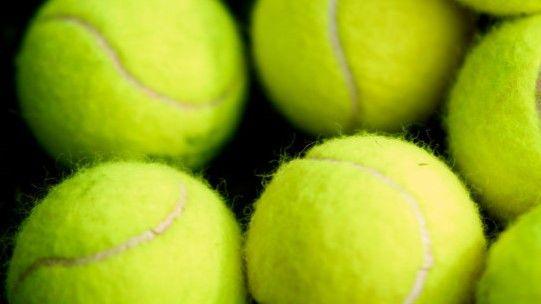'Toughest battle in my life' - Swiatek accepts one-month doping ban

Iga Swiatek has won the French Open in four of the past five seasons
- Published
World number two and five-time Grand Slam champion Iga Swiatek has accepted a one-month suspension after testing positive for a banned substance.
The 23-year-old reigning French Open champion tested positive for a heart medication, trimetazidine (TMZ), in an out-of-competition sample in August 2024, when she was world number one.
The International Tennis Integrity Agency (ITIA) accepted that it was caused by contamination of the regulated non-prescription medication melatonin, manufactured and sold in Poland, which Swiatek took for jet lag and sleep issues.
Swiatek's level of fault was therefore considered to be at the lowest end of the range for 'No Significant Fault or Negligence'.
"In the last two-and-a-half months I was subject to strict ITIA proceedings, which confirmed my innocence," she said on Instagram.
"The only positive doping test in my career, showing unbelievably low level of a banned substance I've never heard about before, put everything I've worked so hard for my entire life into question.
"Both me and my team had to deal with tremendous stress and anxiety. Now everything has been carefully explained, and with a clean slate I can go back to what I love most."
Swiatek was provisionally suspended from 12 September before successfully appealing, missing three tournaments.
The Polish player appealed the provisional suspension on 22 September, notifying an independent tribunal that the source of the positive test had been identified as a contaminated medicine manufactured in her home country.
After testing confirmed Swiatek's account, the ITIA offered her a one-month suspension which she accepted on Wednesday.
Because her provisional suspension was lifted on 4 October, Swiatek's period of ineligibility will end on 4 December 2024.
The Pole was also forced to forfeit the prize money from her run to the Cincinnati Open semi-finals, the tournament that directly followed the test.
"I admit this situation hit me hard because all my life I strived to have a career that could be an example for generations to come," added Swiatek.
"I have a sense this situation could undermine the image I've been building for years, which is why I hope you will understand I had no control over it and could do nothing to prevent this unfortunate turn of events.
"Without my supporters I am not sure I would have been able to find the strength to carry on and keep fighting. Now I have fought the toughest battle in my life, and I hope you will stay with me and keep supporting me."
In addition to her fourth French Open, Swiatek won titles in Doha, Indian Wells, Madrid and Rome in 2024.
She missed the Korea Open (16-22 September), China Open (25 September – 6 October) and Wuhan Open (7-13 October - she was suspended during the entry deadline).
The ITIA did not disclose her provisional suspension because the player successfully appealed within 10 days of the notice.
ITIA chief executive Karen Moorhouse said: "Once the source of the TMZ had been established, it became clear that this was a highly unusual instance of a contaminated product, which in Poland is a regulated medicine.
"However, the product does not have the same designation globally, and the fact that a product is a regulated medication in one country cannot of itself be sufficient to avoid any level of fault. Taking into account the nature of the medication, and all the circumstances, it does place that fault at the lowest end of the scale."
Swiatek's suspension comes after men's world number one Jannik Sinner tested positive for clostebol in March.
Although the ITIA accepted there was "no fault or negligence" attached to the 23-year-old Italian, the World Anti-Doping Agency (Wada) has launched an appeal to the Court of Arbitration for Sport (Cas).
The Women's Tennis Association (WTA) acknowledged the ITIA decision in a statement and offered its "full support" to Swiatek during a "difficult time".
"Iga has consistently demonstrated a strong commitment to fair play and upholding the principles of clean sport, and this unfortunate incident highlights the challenges athletes face in navigating the use of medications and supplements," added the WTA.
"The WTA remains steadfast in our support for a clean sport and the rigorous processes that protect the integrity of competition.
"We also emphasise that athletes must take every precaution to verify the safety and compliance of all products they use, as even unintentional exposure to prohibited substances can have significant consequences."
'Similarities between Swiatek and Sinner' - analysis
BBC Sport tennis correspondent Russell Fuller
Just like Sinner, Swiatek fell foul of a medication which can be bought over the counter in her home country.
And the similarities do not end there, as both successfully challenged the mandatory provisional suspension which comes with this type of violation.
This was helped enormously by the fact both could swiftly identify the source of the positive test, which in Swiatek's case was confirmed by a Wada-accredited laboratory in Utah.
In her social media post, she spoke about being able to return to what she loves most with a “clean slate.”
But Swiatek also admitted she has a sense this could undermine the image she has been trying to build for years - sentiments echoed by Sinner earlier in the year.
Related topics
- Published16 August

